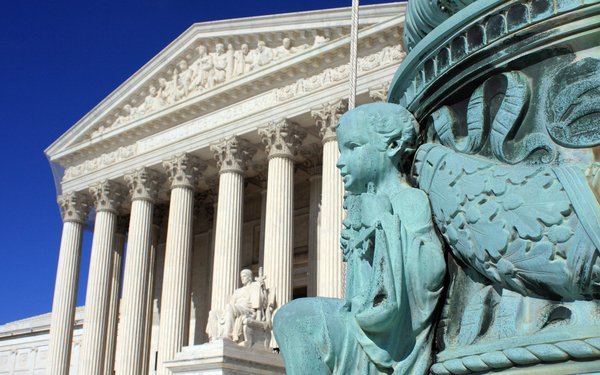
Ride-sharing
company Uber, online glasses seller Warby Parker and the Los Angeles Chamber of Commerce are among a host of companies and business organizations asking the Supreme Court to leave in place a decision
that prohibits the Department of Commerce from including a question about citizenship in the upcoming census.
“All available evidence confirms that the citizenship question will impair
the accuracy of the census,” the organizations write in a friend-of-the-court brief filed Monday with the Supreme Court.
The groups are weighing in on a battle over the Trump administration's plan to ask census respondents whether they
are citizens. Federal judges in New York and California recently banned the Commerce Department from including that question. The administration is now appealing those decisions to the Supreme Court.
advertisement
advertisement
Among other arguments,
the administration says judges shouldn't review the census questions.
“Demographic questions, including ones about sensitive topics such as race, gender, marital status, and citizenship,
long have appeared on the decennial census questionnaire,” the Commerce Department argues. “Yet until now no court has seen fit to police the contents of the decennial census
questionnaire.”
Uber and the other businesses argue to the Supreme Court that questioning people about their citizenship will lead to undercounting of non-citizens, which will harm
businesses that “rely on the census for marketing, product development, operations and other purposes.”
The Census Bureau has estimated that asking people about their citizenship
would result in an additional 5.8% of households to refuse to respond to the census, compared to the last census. The companies weighing in with the Supreme Court argue that even a 5.8% drop in
response rates “would result in significantly flawed data, undercounting millions of people.”
“Businesses use census data to inform decisions about product development and
placement.
A retail business may, for instance, rely on demographic data to determine which products are going to sell best in which regions, and calibrate each store’s stock
accordingly,” the groups argue.
“Flawed census data can also impact customer outreach. For example, because utility companies often offer lower rates for poorer, elderly, or
disabled customers, utility companies use census data to determine which areas are most likely to need those special rates and reach out to customers in those areas to evaluate eligibility,”
they add.
The Nielsen Company also weighed in against the Commerce
Department's plans.
“Nielsen itself uses census data both to compile its 'sample' households and to extrapolate the results of its samples to local and national markets for both media
and consumer purchase measurement,” the company writes in its own friend-of-the-court brief. “The addition of a question to the census that will reduce the census’s accuracy will
have a lasting and negative impact on the operations of the largest American consumer product manufacturers, retailers, media, and marketing businesses.”
The major ad industry groups
said last year they objected to the citizenship question.
“We are concerned that the addition of a citizenship question would depress response among both non-citizens and their families (even if family members are indeed citizens),” the CEOs of
the American Association of Advertising Agencies, American Advertising Federation, Association of National Advertisers, and Advertising Research Foundation wrote in a jointly signed letter sent to the
Commerce Department last August.
The Supreme Court is expected to hear arguments in the matter this month, and issue a decision in June.